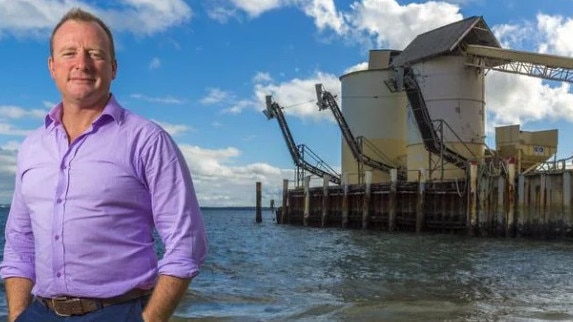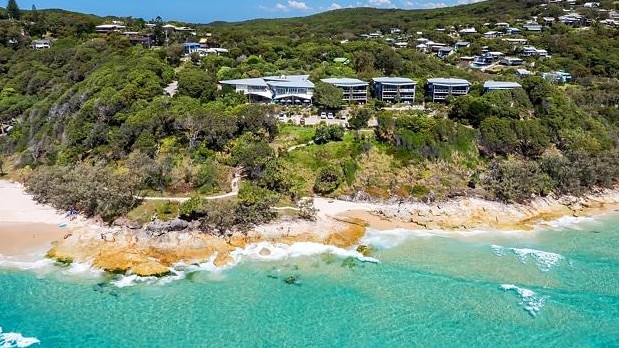State Government axes financial support for redundant Straddie sand miners
The state government has axed financial assistance for redundant sand miners from North Stradbroke Island but has promised to continue support packages and retraining.
Redlands Coast
Don't miss out on the headlines from Redlands Coast. Followed categories will be added to My News.
The state government has axed financial assistance for sand miners made redundant from North Stradbroke Island but has promised to continue support packages and retraining.
Two weeks of anxious waiting to find out what support would be available has ended for about 40 Minjerribah residents after the North Stradbroke Island Workers Assistance Scheme was wound up on July 1.
Despite the scheme’s end, the state government this week promised to continue to help current Sibelco staff and those who lost their jobs when the sand mine closed in 2020 and still live on the island.
Small Business Minister Di Farmer said the ex-workers would remain a priority for government assistance, mainly retraining for new careers but not financial aid.
“Workers have been advised they will remain a priority cohort for the Department of Employment, Small Business and Training and there is a range of support and assistance available for them to access, subject to eligibility requirements,” Ms Farmer said.
Ms Farmer said there were 184 Sibelco workers who received help under the scheme, with 166 accessing financial assistance.
She said workers who were still employed would receive redundancy payments under their entitlements.
However, the state has refused worker requests for an employee dislocation allowance for those still employed after the June 30 deadline.

But island resident and former Sibelco manager Paul Smith, who worked for the company for a decade but was ruled ineligible for aid from the package, said only a small percentage of the allocated money had been spent and many missed out on much-needed help.
Mr Smith, who set up his own business on the island after the mine closed, said there had been no funding for emerging businesses.
“It is hard to determine, but not many people got financial help to relocate off the island — with the majority of the scheme allocated for retraining,” he said.
“But there’s only a certain amount of retraining that can be done.
“How does a miner retrain for a non-existent job on the island?”
The scheme was introduced in 2016 as part of a state initiative to help the island adapt to tourism and other industries after mining and to retrain more than 50 Minjerribah residents for new careers.
Up to $5 million was available for eligible Sibelco workers on the island and at the Pinkenba processing plant over five years to May 31, 2021.
The scheme was extended until June 30 this year giving workers two-and-a-half years of support after mining ended.
But island Chamber of Commerce president Colin Battersby said the package had done very little to kickstart the island economy after the mine shut and the government had locked away the cash.

“There is no way that the $5 million has been spent — it would be impossible,” Mr Battersby said.
“Those working at Sibelco were on $110,000 a year which is an economic cash injection that is impossible to replace with barista jobs on the island.
“Most of those ex-workers have left the island now because there is no work here for them.”
When first introduced, assistance included job search, training and skills support, housing assistance, a commuting subsidy, an employer wage subsidy, income supplementation, and a dislocation allowance.
Individuals could claim up to $2000 for job search and skills training, $5000 for a commuting subsidy and a one-off $5000 payment for housing assistance.
The housing assistance and commuting subsidy elements were only available to Sibelco workers who were island residents.
Ms Farmer said the underlying intent was to encourage island residents to continue to live on Minjerribah, to support their local community and contribute to the local economy.
The scheme was expanded in 2019 and early 2020 to include financial advice and small business mentoring up to the value of $1000 each.





